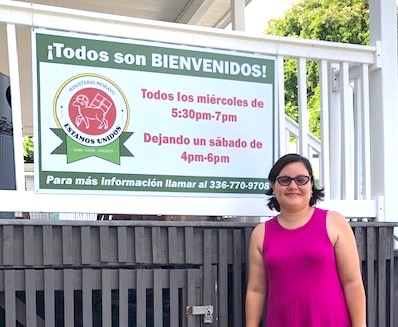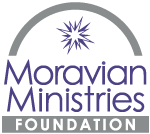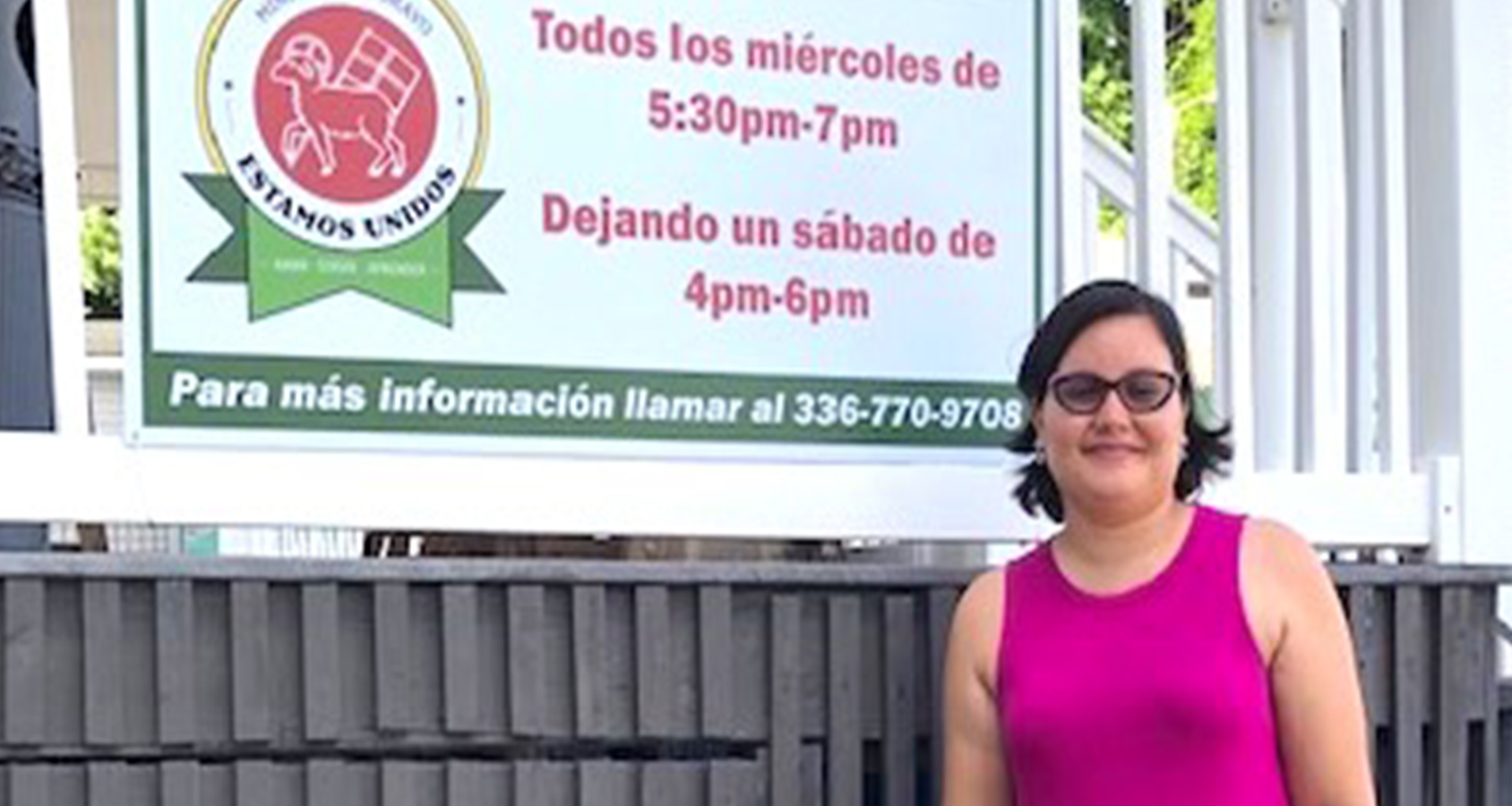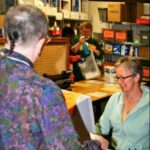
By Lydian Bernhardt Averitt
Rev. Angelica Regalado-Cieza knows what it’s like to be an immigrant, navigating a path through issues as complex as filing health insurance to ones as simple as finding groceries within budget.
She knows because she is one.
Now the founder and director of Estamos Unidos Moravian Ministry, Cieza has been in the United States for 15 years. But she still remembers how it feels to be new.
“I remember standing at the intersection of Church Street and Bank Street in Old Salem wondering, ‘What do I do now?’” she says. “I meant not just, ‘Where do I go to find my meeting?’ but what direction to take in life – how to start this ministry. That’s what our families at Estamos Unidos are doing. They’re figuring out what to do, how to live here.”
Estamos Unidos means “We are United,” and the four-year-old Moravian ministry unites in many ways: recent Hispanic immigrants with American culture; people of vastly different syntax and traditions; everyone as God’s children.
“Our goal is to provide for our Hispanic brothers and sisters in the community, and there are many, through service and education. In doing that, we present God’s love to our neighbors,” Cieza says. “We want to build a supportive community that reaches beyond the barriers of language and culture.”
Estamos Unidos was among the first recipients of a grant from the Moravian Ministries Foundation in America’s Hunger & Thirst Field of Interest Fund in 2020.
Preparation
A native of Chiclayo, Peru, Cieza came to North Carolina with her brother in 2006. Her parents had immigrated years earlier, following her father’s call as a Wesleyan minister. Cieza’s mother, a school teacher, became involved with Bethabara Moravian Church’s Hispanic ministry, and Cieza joined in her work.
“That’s where I learned about the Moravian Church and felt the call to join it,” she says. “I had some college in Peru, and some English, and was able to finish my degree at Forsyth Tech before going to Wake Forest Divinity School and Moravian Theological Seminary. I was very glad to learn that the church wanted me to pastor an emerging ministry.”
Although the nature of that ministry may seem obvious in retrospect, it was only after a year of research, community meetings, discernment and prayer that Estamos Unidos was born.
Meeting the need
“I had some idea of what the Hispanic community needed,” she says. “We just started trying different programs, like Vacation Bible School or financial literacy classes. In the beginning, it was mostly me and my husband, and we would knock on doors, we set up a Facebook page, we’d connect with people through word of mouth. And members of the community started growing.”
Before gathering restrictions were made necessary by COVID-19, as many as 70 adults and children were coming on Wednesdays and Saturday mornings to the low, rambling Sunnyside Ministries building for programs on obtaining a GED, learning English and reading, financial literacy, Spanish for Hispanic people. Youth learned guitar and keyboard. Younger children had crafts and activities, learned Bible stories and sang songs. Cieza put together some of the curriculum does some herself; other times she would use study materials that fit the community’s needs.
One of those needs is finding the commonality within diverse Hispanic cultures.
“There are 22 countries that speak Spanish, but the way the language is put together, and the traditions, are very different from country to country. Many of our ministry members come from Mexico, but also Equador, Dominican, Puerto Rico, Colombia, Guatemala, El Salvador.”
“Within this ministry, there are a number of Hispanic young people are from indigenous cultures. Spanish is their second language; they’re learning it in the U.S. I’m trying to teach them a little Spanish so we can communicate better.
“I always say that if you want to get little bit of all those countries, you can come to the U.S. – you can find everybody here.”
One key aspect of life in America that Cieza, a mother of two, stresses in the ministry is the importance of education, not just for immigrant children but for their parents.
“I try to get people to see that the way to get ahead in this country is education – not just for our kids, but for us, the first-generation immigrants,” she says. “The way things work here is very different from many Latin countries, and you have to be educated to do well.
“They’ll say, ‘It’s too late for me,’ but it’s never too late. Once our kids see us trying, they’ll want to try, too. We have had several “college is possible” workshops, and I have invited many of the organizations that helped me finish school so they can see there is help.“
The pandemic hit the community very hard, Cieza says, and some families have moved. But others have stayed, and are eager to reconnect with the ministry, which is still primarily online.
“When the pandemic started, I called every one of our families, because most of them don’t have internet or email. It took days, but it was so good to know how people were doing.
“One lady was very scared about the pandemic and wanted to know more about what God said about the end of the world. So I said, “Let’s start a Bible study,” and we did – just the two if us, online. Now we have 11 participants.”
Facing challenges
Cieza says that her greatest challenge is remembering that, no matter what, she doesn’t have to have all the answers.
“When you’re in middle of a room of 70 people thinking, ’What am I going to do now? How can this even be possible?’ I remember that it’s ok. God will help,” she says.
But having a few human helpers never hurts, either, Cieza says.
“Seeing people interact with the people of this ministry has filled my heart in so many ways,” she says. “When you do mission work, people think you’re going to go bless somebody else, but getting to know other people and having experiences outside what we’re used to opens our eyes. Truly, we get the blessing.”
Want to help? Reach Rev. Angelica Regalado Cieza at aregalado@mcsp.org, at (336) 575-3530, or make a gift now through the Moravian Giving Portal. Or, read more about Cieza.











